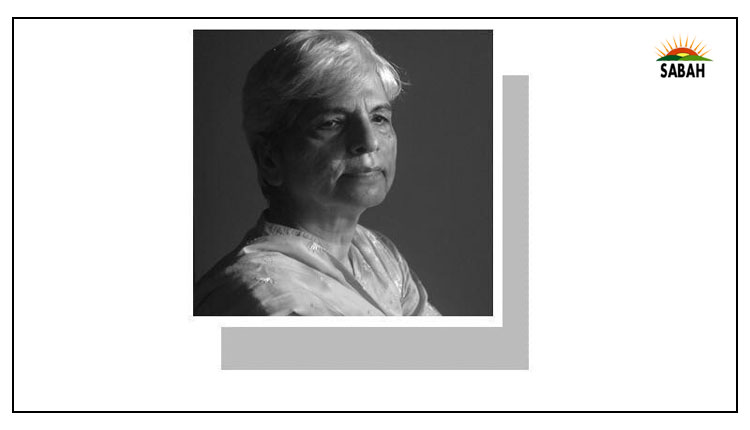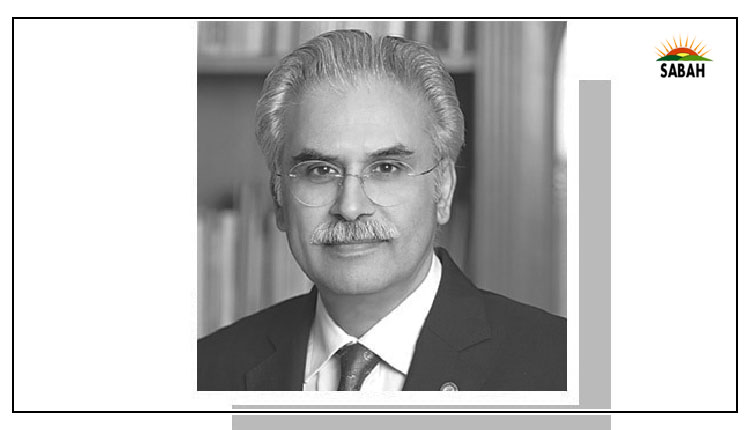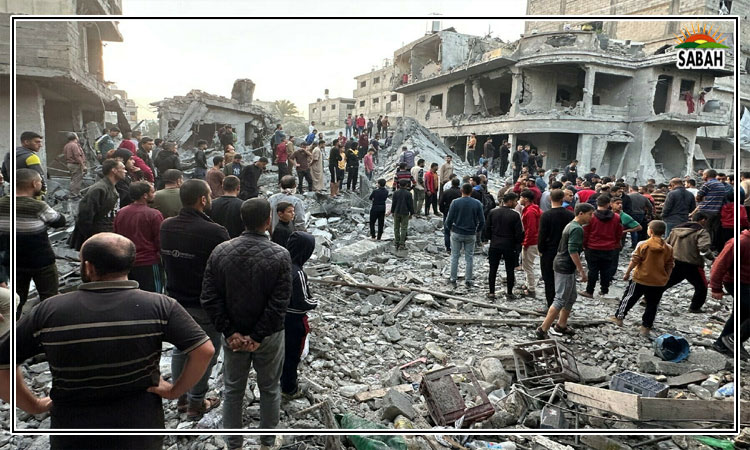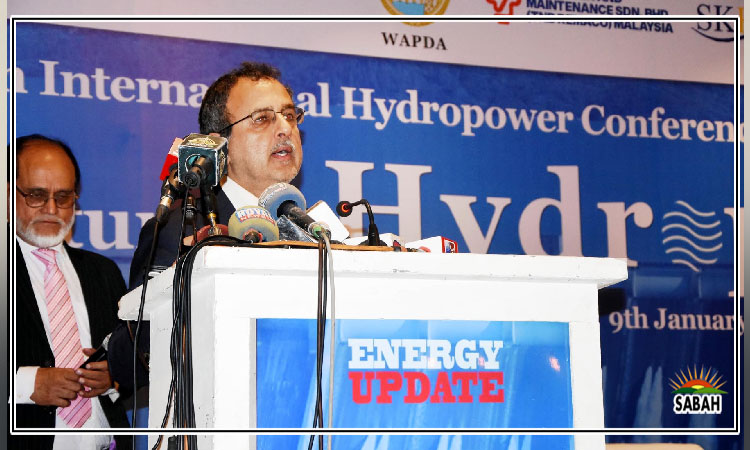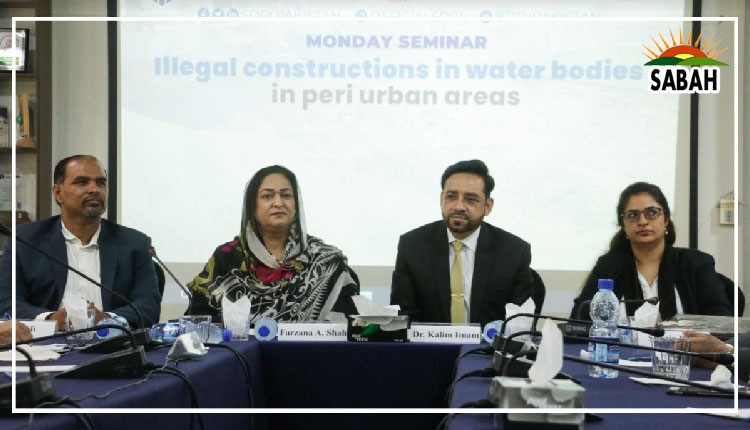EIA compliance vital to stop environmental degradation, say experts at SDPI seminar
ISLAMABAD, July 19 (SABAH): The experts at a seminar demanded strict compliance on the Environmental Impact Assessment (EIA) and implementation of master plans for big cities to protect water from contamination and environmental degradation being caused due to unplanned urban development.
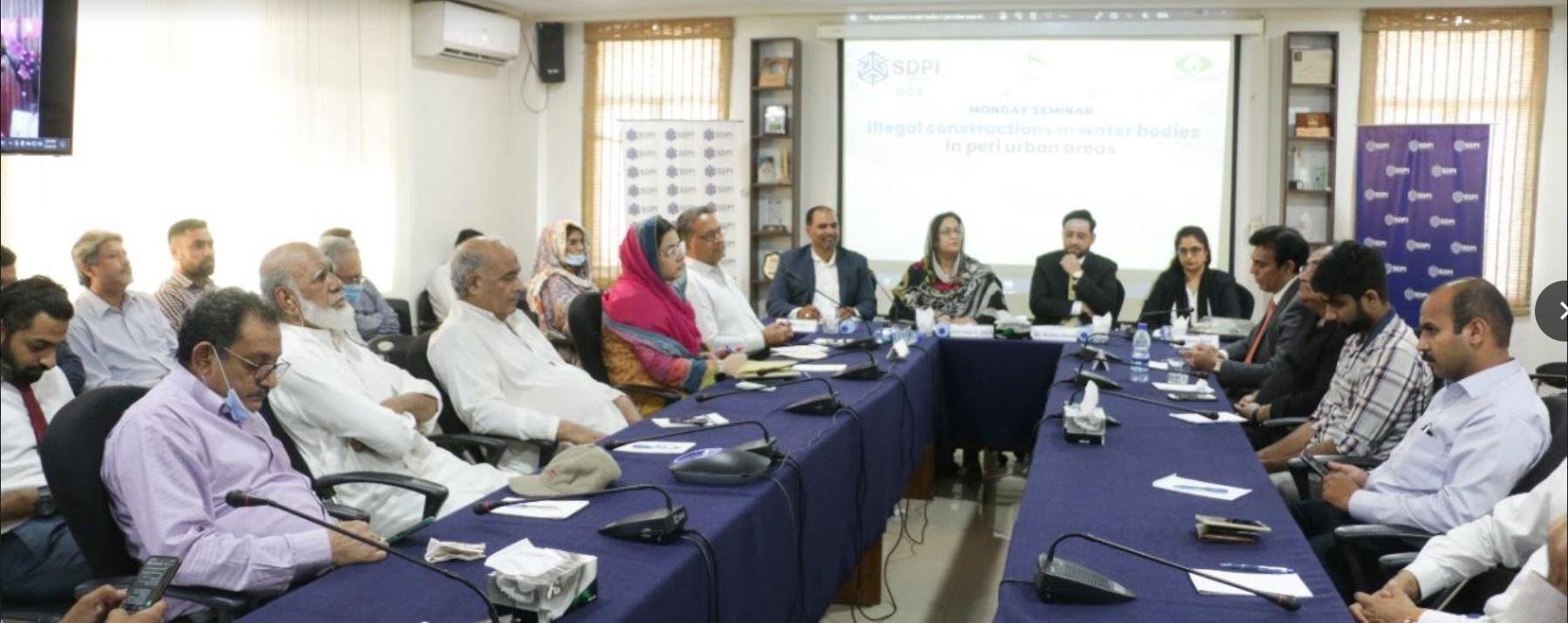
The seminar on ‘Illegal constructions in waterways in peri-urban areas’ was organized by Sustainable Development Policy Institute (SDPI).
Speaking on the occasion, Romina Khurshid Alam, Special Assistant to the Prime Minister, said that Pakistan is currently facing the challenge of rural to urban migration while the urban areas are unequipped with the capacity to handle and accommodate the migrants. She further said that development projects in the urban areas are destroying the natural ecosystems especially due to the construction of high-rise buildings to accommodate urban population. Criticizing the public departments for their inefficient monitoring of corporate housing societies, she said there is a poor development in urban areas because it is causing problems of sanitation, water contamination, air pollution and urban flooding.
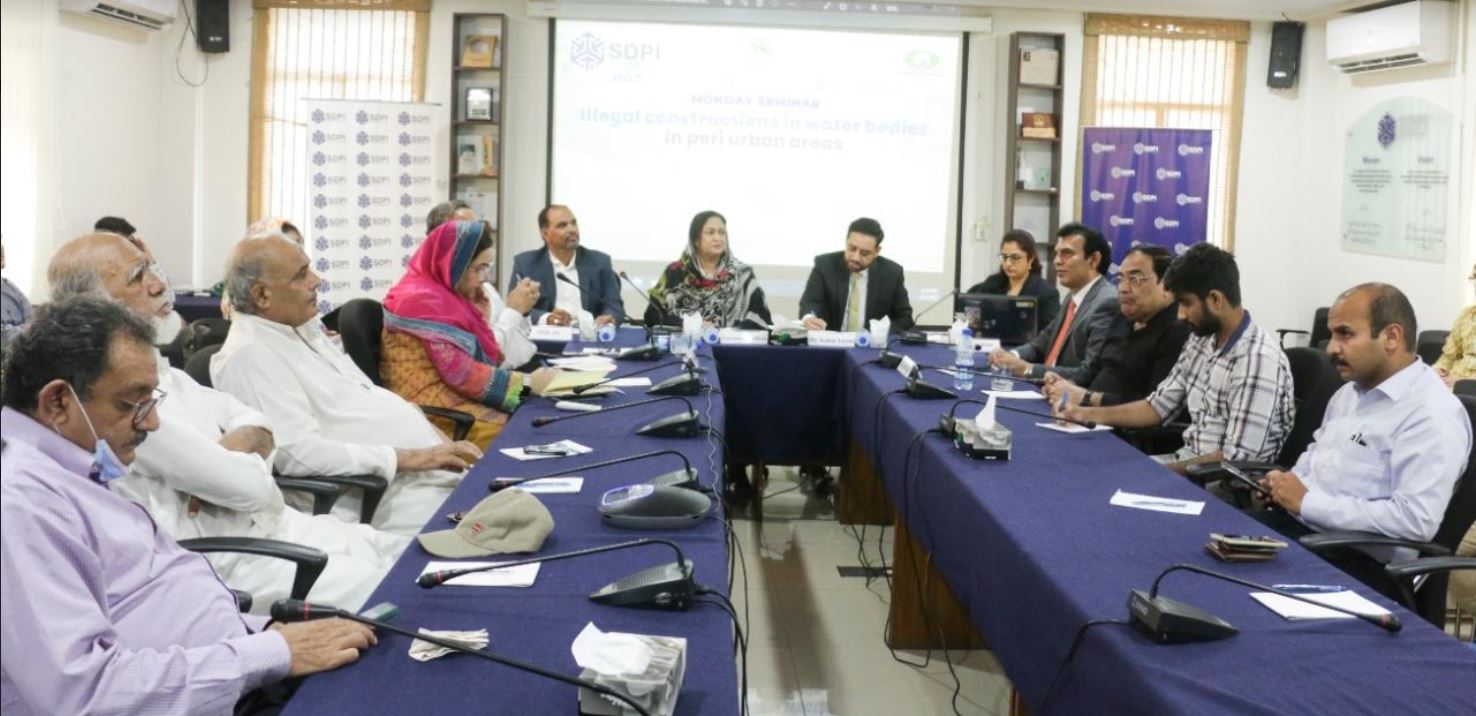
The SDPI Executive Director Dr. Abid Qaiyum Suleri said that the issue of illegal constructions in close proximity of waterways is a very serious issue in Pakistan. Each year, during the monsoon season, several incidents of urban flooding are reported, he said, adding that development of housing societies is allowed in these vulnerable areas putting the lives of thousands of people at risk.
Farzana Shah, Director-General of Pakistan Environmental Protection Agency (PEPA), called for strengthening and improving the coordination among government departments to restore the real spirit of the master plan of Islamabad. She told the participants that proper urban planning is just restricted to the central areas of Islamabad city, and that’s why the suburbs like Bara Kahu and Tarnol continue to expand in a haphazard manner. She credited such issues to the lack of coordination between EPA, Capital Development Authority and Islamabad administration besides the lack of EPA enforcement power and its reliance on law-enforcement agencies. She also informed that the compliance of the private sector in guarding environmental laws is quite low and development of housing societies is allowed to continue despite it being challenged in the court of law. When a court decides against these developments, there is a low potential to roll back the damage already caused. She stressed the need to sensitize the public at a large-scale regarding the environmental issues to improve compliance and performance of the public and private sector. She demanded a complete ban on the cutting of trees such as pine and banyan.
Former Federal Secretary Dr. Syed Kalim Imam called for conducting the accountability of people in their individual and professional capacity. He was of the view that intellectual dishonesty must be taken as a crime and such people should be held accountable by the authorities concerned. He emphasized the need to sensitize people about environmental and social concerns especially regarding the environmental impact of developments in the urban and peri-urban areas. He also urged legislators to monitor the implementation of laws formulated by themselves.
Shazia Bilal advocate, Supreme Court of Pakistan, pointed out that according to some estimates over 1,000,000 people in Islamabad live in around two dozen slums. There has been a visible increase in the number of slums in Islamabad, which exposes the unplanned expansion of the city as well as weak monitoring and management systems. Referring to the case of Margalla Hills National Park, she pointed out that these developments caused serious environmental hazards and continued without any intervention from CDA or ICT Administration.
Abid Ali, an environmental journalist, said that the EIA requirement is followed in the central part of Islamabad whereas it is usually overlooked in the suburban areas. He pointed out that the buildings in the peri urban areas especially around the Rawal Dam are the leading causes of water contamination and these developments include a large number of government buildings as well. He further said that the water of Rawal Dam is contaminated by solid waste from these developments and contains high amounts of metal traces, which are highly injurious to human health. He suggested developing a strong system of coordination between CDA, ICT and EPA so that these institutions might work in close coordination and collaboration with each other.
Dr. Shaukat Hameed pointed out that sewage and contaminated water, which contains arsenic and other toxins, is allowed to mix into fresh and clean rivers and waterways in Islamabad, Faisalabad and numerous other cities of the country, which is consumed by humans. To maintain the water quality of the city, he said, natural water bodies should be monitored regularly. He suggested that all hospitals must immediately be equipped with incinerators to prevent harmful and toxic hospital waste from contaminating the environment. The wastewater produced and emitted from these sites should also be treated properly, he said, and criticized the role of waste management authorities for their low capacity to manage the issue.
Moazzam Bhatti from SDPI suggested strengthening the coordination between public regulatory institutions with the law-enforcement agencies to support their operations. He also suggested developing a better mechanism to align the public needs for development projects and infrastructure while ensuring the protection of the environment with long-term policies developed by experts rather than short-term policies inspired by political agendas.


